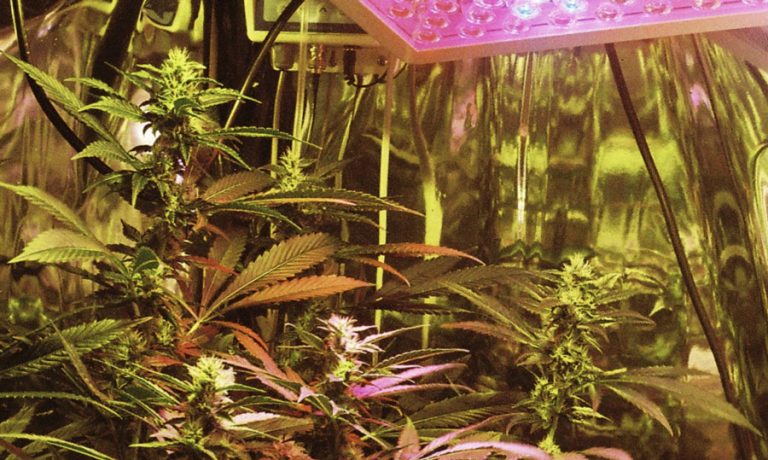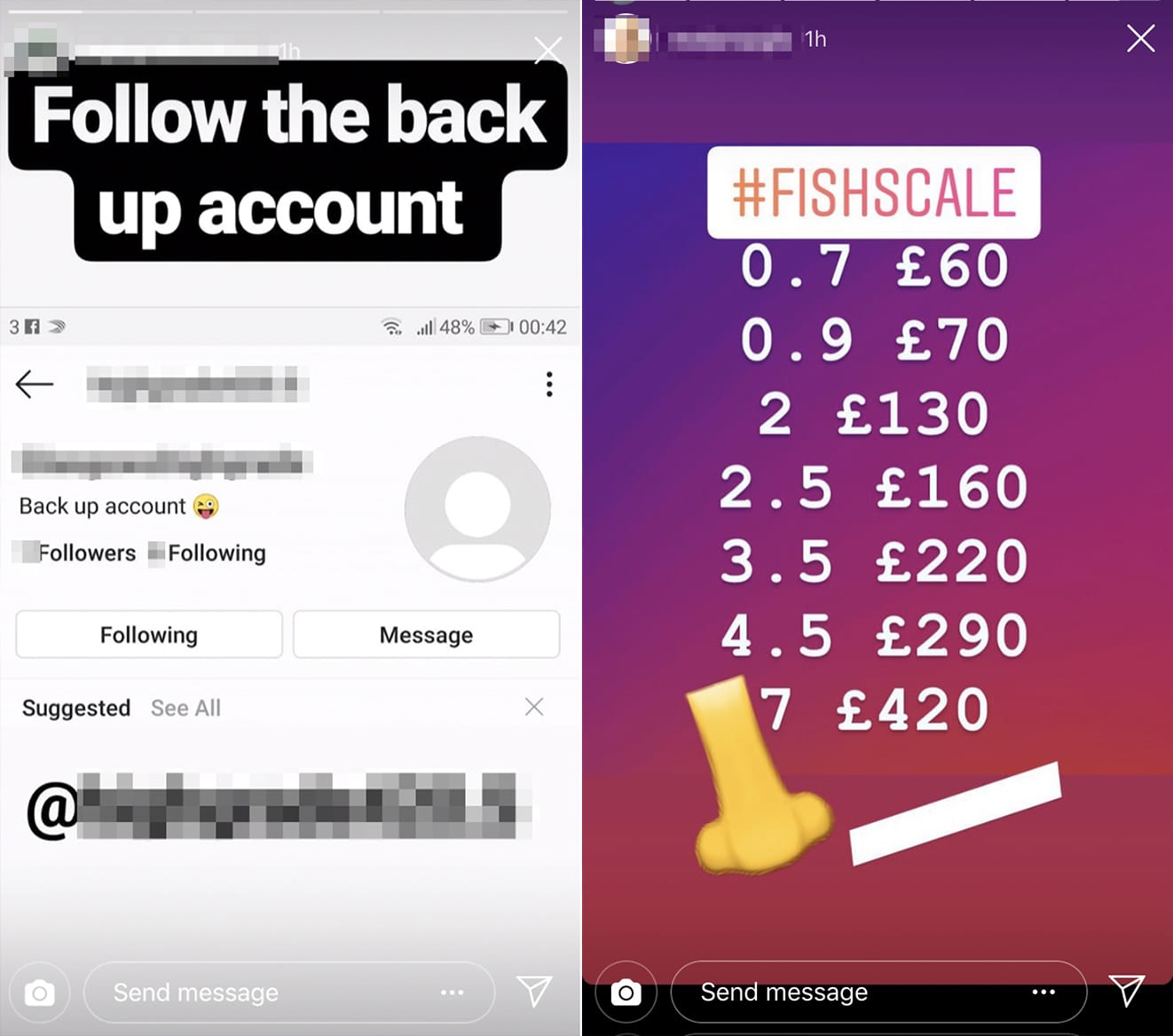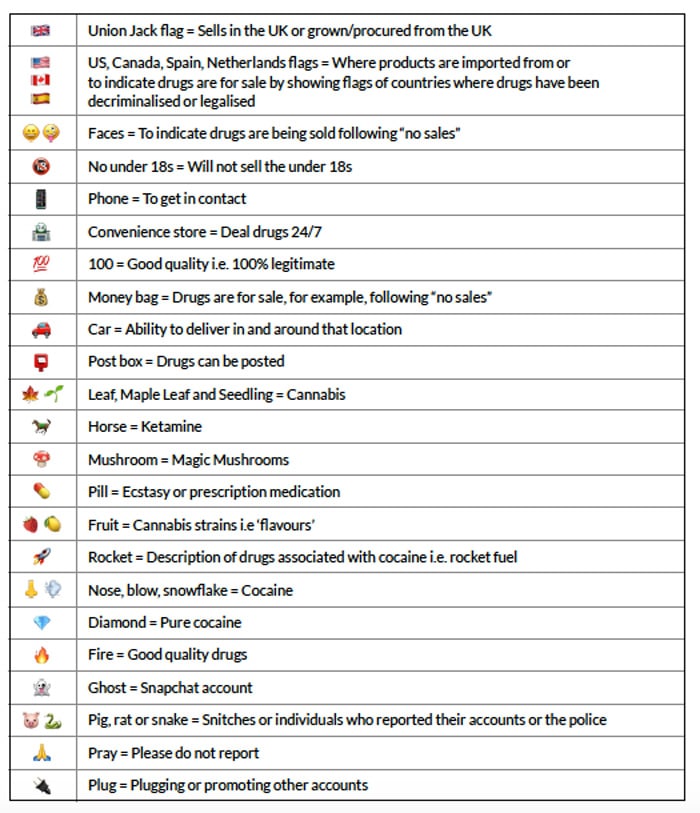New report exposes how easy it is for young people to buy drugs on social media

Forget street corners, dodgy cars, or the dark web. According to the trailblazing report DM for Details: Selling Drugs in the Age of Social Media published over the weekend by the think-tank Volteface, social media platforms are the new marketplace for selling and buying drugs, particularly among young people.
Drugs being sold on the internet is not necessarily news, but the report reveals how the phenomenon came a long way since drugs were bought with Bitcoins on Silk Road. The proliferation of drug dealing accounts on the most common platforms such as Snapchat, Instagram, and Facebook speaks of a grand-scale hashtag-driven trend, one that regulators are evidently struggling to keep up with.
Through evidence-based policy and reform, Volteface aims to reduce the harm drugs pose to individuals and society. When the organisation began the study, it was not expecting the issue of online drug dealing to be this extensive. Scarlett Furlong, the policy advisor at Volteface and co-author of the report, told Screen Shot, “When we started this research, we weren’t really sure about how big of an issue this was, particularly in the U.K. context. When finding that 1 in 4 young people have seen drugs advertised for sale we realised the range was quite abnormal,” adding that, “We were meant to publish this report last February, but after seeing how relevant all data were, we realised it was necessary to publish all our findings.” Alongside interviews and focus groups with children, the police, and youth workers, the report’s results are mainly based on polls of 2,006 young people, aged 16 to 24 years old, as well as observational trawls of Facebook, Snapchat, and Instagram, where the researchers went undercover to observe the ways online drug dealings operate.

According to the report, it seems that social media is not only a place for customers to find and purchase drugs, but also an arena for targeting different demographics to become new customers, including new dealers. Young people who otherwise might have never ended up within an environment where drugs are sold and bought offline, could now find themselves just a few hashtags and scrolls away from online communities of drug dealers. One of the main concerns raised by the report is the role that social media platforms are playing in normalising drug use. During its study, Volteface interviewed an anonymous young person who admitted that, “it romanticises it. People think that nothing can go wrong. It really overshadows any drug education people had in the past, like in PSHE lessons or anything like that.”
Personal relationships between dealers and customers have always existed, but social media has tightened the gap between the two parties, creating a close relationship before any transactions take place. It creates the same feeling of familiarity we might have with strangers we follow on Instagram. As quoted in the report, potential buyers “stumble upon numerous dealers showing what young people perceive to be their ‘authentic’ self, or, as is the case with all social media, a side of themselves that the dealer wants the social media user to see. Drug dealers posting about going to college, talking about their family and going to comedy shows.” Dealers are suddenly like everyone else, and with that dispelling any connotations of dangerous and illicit activities that previously existed.

The design of our favourite online platforms, as well as their algorithms, plays a crucial role in the spreading of online drug dealing. Via features such as the ‘suggested friends’ bar and by looking at other people’s ‘following’, ‘follower’ or ‘friends’ list, young persons could find dealers extremely easily. Compared to the dark web, for instance, social media platforms are more user-friendly and way less complicated to navigate, and features such as screenshots, hashtags, swipe-ups, and saved Instagram stories are allowing dealers to be as creative as they want when advertising their products.
Drug dealing has always had specific codes attached to it, including slang that develops with time. Within this context, emojis have become the ultimate alphabet to communicate prices and offers. With an entire visual vocabulary at their disposal, dealers found the perfect way to describe their products clearly without using explicit descriptions nor posting graphic images of actual drugs—although this happens quite frequently too. Eventually, like every digital phenomenon, drug dealing too has picked up the dynamics that are intrinsic to social media platforms: with dealers doing shout-outs to other dealers, calling out scammers, and even growing a considerable amount of followers.
The report goes beyond revealing the shift from offline to online dealing, as it’s shedding light on current drug trends more broadly. “One of the things I was most surprised by was the prescription medications that were sold online. Xanax is the fourth most seen drug that young people have seen online,” Furlong said. The rise of prescribed drugs and their success on social media is an indication of today’s tendencies when it comes to drug consumption. Xanax is the fourth most seen drugs on social media, just after weed, cocaine, and ecstasy—a finding that hasn’t yet been properly acknowledged by institutions, schools, and experts.
The relentless proliferation of online drug dealing and the explicitness through which dealers are using social media platforms clearly speak of a delay in regulations and effective controls. Like with most digital phenomenons, regulators are struggling to keep up with the pace and the codes of online drug dealing. “We want to share all the information we have collected with legislators and companies alike to make sure we all work together to prevent this to grow exponentially,” Furlong adds.
According to Volteface, the government should introduce a regulatory requirement for social media companies to monitor activity on their platforms and to ensure that they are aware of how language, emojis, and design features are used to facilitate drug dealing. Moreover, the report recommends that this research is used to inform already existing algorithms that monitor and remove dealers’ accounts and that “Snapchat, Facebook and Instagram should be included within the scope of the Government’s Online Harms regulatory framework”. Staying coherent with its belief, Volteface is confident that even in this context, cannabis legalisation would be the most effective policy to alleviate the problems outlined in the study.
This phenomenon isn’t simply the migration of drug dealing from real life to the Internet, but also seems to be a brand new way of dealing illegal substances altogether; it is a way of selling and purchasing drugs that is infused with the same social media dynamic young people relate to on a daily basis.




